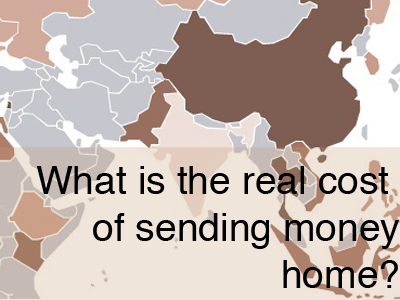What is the Impact of Remittance Prices?
Remittances already dwarf official development assistance as a major contributor to the incomes of people in developing countries. In some countries, such as the Philippines, Jamaica, Lebanon, El Salvador and Haiti, remittances from abroad make up over 10% those economies. As with official aid and microfinance, a little goes a long way.
The money transfer companies profit from remittances in two ways: from fees, and from exchange rate margins. The fees are simply a charge based on the timeframe and amount of the remittance. Internet and mobile phone-based transfers are usually cheapest. MTOs usually apply a more expensive exchange rate than the current interbank rate to each transfer. This protects the MTO from losing money in case the exchange rate changes suddenly. In some cases, the difference between the fair exchange rate and the rate charged to the remitter can be as much as nine percentage points.
“Sub-Saharan Africa is some of the poorest countries. They need the remittances more, but the migrants pay the highest prices.” Kai Schmitz, World Bank
Several factors contribute to price discrepancies between countries. Corridors with the most volume such as the U.S.-Dominican Republic corridor tend to be cheaper, and corridors with less migration, such as the U.S.-Kenya corridor, are more expensive. However, there are peculiarities that complicate a simple supply vs. demand equation. The U.S.-Mexico corridor is the highest-volume migration corridor in the world, but Mexican remitters still pay higher than average prices for money transfers.
Price discrepancies are often attributable to poor banking infrastructure in the receiving countries. The lack of infrastructure raises the price of bringing money to the area, and also limits competition. When there are fewer channels through which to send money, the price inevitably rises.
There are some cases where MTOs arrange for exclusivity in corridors where there are few banks to distribute the money in the destination country. Nigeria and other countries have outlawed agreements like this, but countries that have competitive banking sectors
In a more egregious case, when the Haitian diaspora came out to support their families back home after the 2010 earthquake with money and most MTOs pledged assistance, one MTO actually took advantage of the huge demand and charged an extra 10% “disaster fee” on the receiving end.
